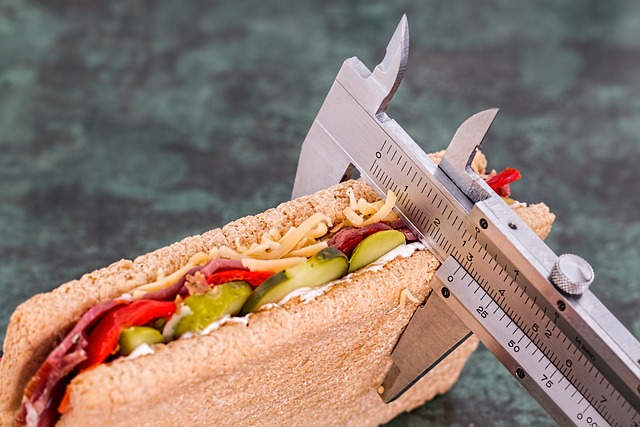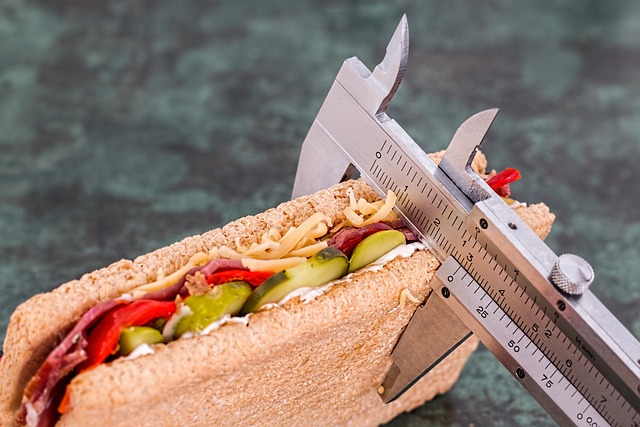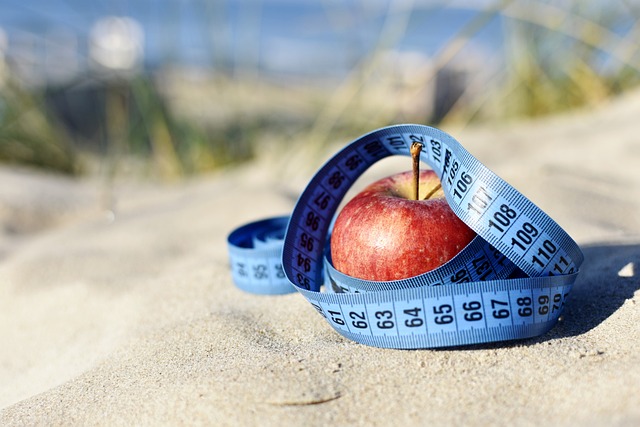Have you ever wondered if there are any specific foods that can help you lose weight? Well, you’re not alone. Many people are on the search for that magical food that can melt away the pounds without any effort. While no single food can do this on its own, there are definitely some foods that can support your weight loss journey. In this article, we’ll dive into the topic and explore the role of certain foods in aiding weight loss.
When it comes to weight loss, it’s important to understand that there is no magic solution. It all comes down to creating a calorie deficit, which means burning more calories than you consume. However, some foods can help you achieve this goal more easily. For example, foods that are high in fiber, such as fruits, vegetables, and whole grains, can help you feel full for longer periods, reducing the chances of overeating. Additionally, protein-rich foods, like lean meats, eggs, and legumes, can boost your metabolism and help preserve lean muscle mass.
Furthermore, certain foods have been shown to have a thermogenic effect, meaning they increase your body’s calorie-burning ability. Spicy foods, such as chili peppers, contain a compound called capsaicin that can rev up your metabolism. Other examples include coffee and green tea, which contain caffeine and catechins, respectively, that can also increase calorie expenditure. So, while these foods won’t magically make the weight fall off, they can certainly support your weight loss efforts.
In conclusion, while there may not be any specific foods that can single-handedly aid in weight loss, certain foods can definitely support your journey. High-fiber foods, protein-rich foods, and thermogenic foods can help you feel full, boost metabolism, and increase calorie expenditure. However, it’s important to remember that weight loss ultimately comes down to creating a calorie deficit through a balanced diet and regular physical activity. So, if weight loss is your goal, incorporating these foods into your diet can be a helpful step in the right direction. To learn more about specific foods and their role in weight loss, keep reading the article.
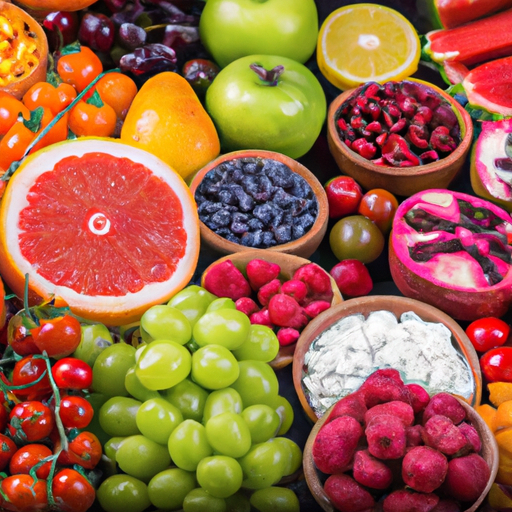
Overview of Weight Loss
When it comes to weight loss, many people wonder if there are specific foods that can help them shed those extra pounds. While certain foods may not have magical fat-burning properties, there are definitely foods that can support weight loss efforts when incorporated into a healthy and balanced diet. In this article, we will explore the role of diet in weight loss and discuss specific foods that can aid in achieving your weight loss goals.
Understanding Weight Loss
Before we dive into the specifics of weight loss foods, it’s important to have a basic understanding of weight loss itself. Weight loss occurs when the calories you consume are less than the calories you burn. This concept is known as a caloric deficit. When you create a caloric deficit through a combination of diet and exercise, your body starts to use stored fat as energy, leading to weight loss.
Factors Affecting Weight Loss
It’s worth mentioning that weight loss is not solely determined by the foods you eat. Factors such as genetics, metabolism, hormones, and overall lifestyle also play a significant role in your body’s ability to lose weight. While specific foods can support weight loss, it’s crucial to adopt a holistic approach that includes both diet and lifestyle modifications for sustainable and long-term results.
Benefits of Healthy Weight Loss
Before we delve into the role of diet in weight loss, let’s first explore the numerous benefits of achieving and maintaining a healthy weight. Losing excess weight not only improves your physical appearance but also enhances your overall well-being. Some of the benefits of healthy weight loss include:
- Reduced risk of chronic diseases such as diabetes, heart disease, and certain cancers.
- Improved cardiovascular health, leading to lower blood pressure and cholesterol levels.
- Increased energy levels and improved sleep quality.
- Enhanced mood and mental well-being.
- Improved mobility and decreased joint pain.
- Boosted self-confidence and self-esteem.
Role of Diet in Weight Loss
Now that we understand the basics of weight loss, let’s explore the crucial role that diet plays in achieving and maintaining a healthy weight.
Importance of Diet in Weight Loss
While exercise is certainly important for overall health, research suggests that diet plays a more significant role in weight loss than physical activity alone. It’s estimated that weight loss is approximately 75% diet and 25% exercise. This highlights the importance of adopting a nutritious and well-balanced eating plan when aiming to shed unwanted pounds.
Caloric Deficit and Weight Loss
As mentioned earlier, weight loss occurs when you create a caloric deficit. This means consuming fewer calories than your body needs to maintain its current weight. To lose weight in a healthy and sustainable manner, it is generally recommended to create a modest caloric deficit of around 500 to 1000 calories per day. However, it’s important to avoid excessively low-calorie diets, as they can be detrimental to your overall health and well-being.
Types of Diets for Weight Loss
There are numerous diets and eating plans available that claim to promote weight loss. It’s important to remember that what works for one person may not work for another. The key to successful weight loss is finding an eating plan that suits your individual needs, preferences, and lifestyle. Some popular diets for weight loss include:
- Mediterranean diet: Rich in fruits, vegetables, whole grains, lean proteins, and healthy fats.
- Low-carb diet: Restricts the intake of carbohydrates, focusing on proteins and fats.
- Plant-based diet: Emphasizes fruits, vegetables, legumes, and whole grains while limiting or excluding animal products.
- Intermittent fasting: Involves alternating periods of fasting with periods of eating.
It’s essential to consult with a healthcare professional or registered dietitian before embarking on any specific diet to ensure it is safe and suitable for you.
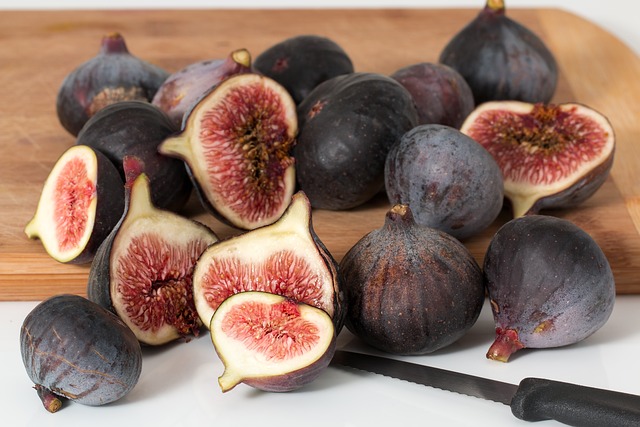
Specific Foods for Weight Loss
Now that we understand the overall role of diet in weight loss, let’s explore specific foods that can aid in achieving your weight loss goals. These foods should be viewed as additions to a well-rounded and healthy eating plan, rather than magic weight loss solutions.
Fruits and Vegetables
Fruits and vegetables are an essential part of any weight loss diet. They are low in calories, rich in fiber, and packed with essential vitamins and minerals. Some specific fruits and vegetables that can aid in weight loss include:
High-Fiber Fruits
Fruits such as apples, berries, and pears are excellent choices for weight loss due to their high fiber content. Fiber helps to keep you feeling full, reducing the temptation to overeat or indulge in unhealthy snacks.
Leafy Green Vegetables
Leafy green vegetables like spinach, kale, and Swiss chard are not only low in calories but also high in nutrients. They are rich in fiber, vitamins, and minerals, making them a great addition to your weight loss diet.
Citrus Fruits
Citrus fruits like oranges, grapefruits, and lemons are known for their high vitamin C content and refreshing flavors. They are also relatively low in calories and can add a burst of flavor to your meals without significantly increasing your caloric intake.
Berries
Berries, including strawberries, blueberries, and raspberries, are not only delicious but also packed with antioxidants and fiber. They can satisfy your sweet tooth while providing essential nutrients and aiding in weight loss.
Protein-Rich Foods
Including an adequate amount of protein in your diet is crucial for weight loss. Protein helps you feel full, preserves muscle mass, and promotes satiety. Some protein-rich foods that can aid in weight loss include:
Lean Meats
Skinless chicken breast, turkey breast, and lean cuts of beef like sirloin are excellent sources of lean protein. They are low in fat and calories and can be incorporated into various recipes to add flavor and satiety.
Fish and Seafood
Fatty fish like salmon, tuna, and sardines are not only rich in protein but also high in heart-healthy omega-3 fatty acids. These fatty acids have been linked to numerous health benefits, including weight loss.
Plant-Based Protein Sources
For those following a vegetarian or vegan diet, there are plenty of plant-based protein sources available. Foods like tofu, tempeh, lentils, chickpeas, and quinoa provide ample amounts of protein while also offering other essential nutrients for overall health.
Whole Grains
Contrary to popular belief, carbohydrates are not the enemy when it comes to weight loss. The key is to choose complex carbohydrates, also known as whole grains, which provide long-lasting energy and essential nutrients. Some benefits of whole grains for weight loss include:
Benefits of Whole Grains
Whole grains contain all three parts of the grain – the bran, germ, and endosperm. This means they are rich in fiber, vitamins, minerals, and antioxidants. Including whole grains in your weight loss diet can help control hunger and reduce the risk of chronic diseases.
Whole Grain Options
Some popular whole grain options include whole wheat, brown rice, oats, barley, quinoa, and buckwheat. These grains can be incorporated into various meals such as salads, soups, stir-fries, and side dishes.
Incorporating Whole Grains in Diet
To increase your intake of whole grains, opt for whole grain bread, pasta, and cereals over refined versions. Swap white rice for brown rice or experiment with alternative grains like quinoa or bulgur. These small changes can make a significant difference in your weight loss journey.
Healthy Fats
Contrary to what many believe, not all fats are bad for you. In fact, healthy fats are essential for overall health and can aid in weight loss. Some benefits of healthy fats include:
Importance of Healthy Fats
Healthy fats provide energy, support cell growth, protect organs, and help the body absorb certain vitamins. They also promote satiety, keeping you fuller for longer, and reducing the risk of overeating.
Sources of Healthy Fats
Some sources of healthy fats include avocados, nuts and seeds, olive oil, coconut oil, and fatty fish like salmon and mackerel. While these foods are high in calories, they can be incorporated into a weight loss diet when consumed in moderation.
Balancing Fat Intake
It’s important to strike a balance when it comes to fat intake. While healthy fats are beneficial, it’s crucial to keep portion sizes in mind to avoid consuming excess calories. Remember, weight loss is all about creating a caloric deficit, so it’s essential to monitor your overall caloric intake, even when consuming healthy fats.
Effectiveness and Limitations
While certain foods can support weight loss efforts, it’s essential to recognize their limitations. Here are some important points to consider:
Weight Loss Foods vs. Overall Diet
Although specific foods may aid in weight loss, it’s important to remember that no single food or supplement can replace a healthy and balanced diet. It’s the overall quality and variety of your diet that matters most. Incorporating weight loss foods is just one piece of the puzzle.
Individual Variations in Weight Loss
Everyone’s weight loss journey is unique, and what works for one person may not work for another. It’s important to listen to your body and find what works best for you. Experiment with different foods and eating plans to discover what promotes weight loss and supports your overall well-being.
Importance of Balanced Nutrition
While focusing on specific weight loss foods is important, it’s equally crucial to ensure you are getting a wide range of nutrients. Restrictive diets or extreme calorie cutting can lead to nutrient deficiencies and negatively impact your health. A balanced and varied diet that includes all essential food groups is key to long-term success.

Tips for Successful Weight Loss
Now that we’ve discussed the role of diet in weight loss and explored specific foods that can aid in your weight loss journey, here are some additional tips to help you achieve your goals:
Creating a Realistic Plan
Set realistic and achievable goals for yourself. Avoid crash diets or extreme weight loss methods, as they are often unsustainable. Gradual and steady weight loss is more likely to be long-lasting.
Meal Preparation and Portion Control
Plan and prepare your meals in advance to avoid impulsive and unhealthy food choices. Additionally, pay attention to portion sizes. Be mindful of your plate and aim for balanced meals that contain a variety of nutrients.
Regular Physical Activity
Incorporate regular physical activity into your routine. Aim for at least 150 minutes of moderate-intensity exercise or 75 minutes of vigorous activity per week. Find activities that you enjoy and make them a part of your lifestyle.
Monitoring Progress
Track your progress using a weight loss journal or app. Monitor your food intake, exercise routine, and any other factors that may influence your weight loss journey. Celebrate your milestones and stay motivated throughout the process.
Conclusion
Weight loss is a holistic and multifaceted process that involves various factors, including diet, exercise, and lifestyle modifications. While there are specific foods that can aid in weight loss, it’s important to approach weight loss with a balanced and realistic mindset. Incorporating weight loss foods in moderation, along with regular physical activity, portion control, and a well-rounded eating plan, can help you achieve and maintain a healthy weight. If you are unsure about the best approach for your individual needs, it’s always a good idea to consult with a healthcare professional or registered dietitian who can provide personalized advice and guidance. Remember, sustainable weight loss is a journey, and embracing a healthy lifestyle is key to long-term success.
